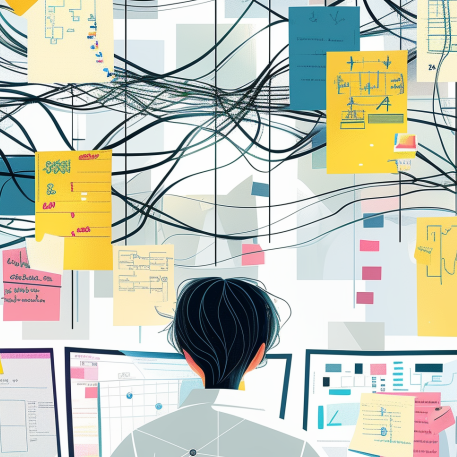
Burnout and stress among behavioral health providers have become pressing issues in the wake of Electronic Health Records (EHRs) adoption. While EHRs have revolutionized the behavioral health landscape, offering unprecedented opportunities for improved patient care, streamlined workflows, and data-driven decision-making, the transition has not been without its challenges. As the demands of technology increasingly compete with the human touch so vital to patient care, many dedicated professionals on the frontlines find themselves grappling with EHR-related burnout and stress.
The numbers paint a stark picture: a recent study found that nearly half of behavioral health professionals report experiencing burnout, with EHR use cited as a significant contributing factor. The constant pressure to navigate complex systems, keep up with documentation requirements, and maintain data accuracy can take a toll on even the most resilient provider. As a result, the very technology intended to support better care can become a barrier to the empathy, presence, and connection that lie at the heart of effective behavioral health treatment.
Strategies to Mitigate EHR-Related Burnout
Fortunately, there are strategies that behavioral health organizations can employ to mitigate the impact of EHR-related burnout and empower their professionals to thrive in the digital age. The first step is to acknowledge the challenge and create an open dialogue about the realities of EHR use. By fostering a culture of transparency and support, organizations can help providers feel heard, validated, and equipped to navigate the demands of technology in their daily work.
One key strategy for reducing EHR-related stress is to invest in comprehensive training and ongoing support. Too often, behavioral health professionals are expected to master complex EHR systems with minimal guidance, leading to frustration, inefficiency, and burnout. By providing robust, role-specific training that goes beyond basic functionality to encompass best practices, tips, and shortcuts, organizations can help providers develop the confidence and competence needed to navigate EHRs with ease. Additionally, offering ongoing support through dedicated IT helplines, super-users, and peer mentoring programs can ensure that providers have the resources they need to troubleshoot problems and optimize their use of the system.
Enhancing EHR Usability and Promoting Work-Life Balance
Another crucial aspect of reducing EHR-related burnout is to prioritize usability and efficiency in system design and configuration. When EHRs are poorly designed or overly complex, they can create unnecessary barriers to care, requiring providers to spend more time clicking and scrolling than engaging with patients. By involving behavioral health professionals in the EHR selection and implementation process, organizations can ensure that the system is tailored to the unique needs and workflows of behavioral health care. This may involve streamlining documentation templates, automating routine tasks, and creating intuitive navigation paths that minimize clicks and maximize face-to-face time with patients.
In addition to optimizing EHR design, behavioral health organizations can also promote work-life balance and self-care among their professionals. The demands of EHR use can easily blur the boundaries between work and personal life, leading to extended hours, increased stress, and burnout. By setting clear expectations around documentation timelines, providing adequate staffing and resources, and encouraging providers to disconnect and recharge outside of work, organizations can help mitigate the impact of EHR-related stress on overall well-being.
Fostering a Culture of Resilience and Support
Finally, it is essential to recognize and celebrate the resilience and dedication of behavioral health professionals in the face of EHR challenges. By acknowledging the human impact of technology and creating opportunities for connection, collaboration, and peer support, organizations can foster a sense of community and shared purpose among their providers. This may involve regular team meetings, staff appreciation events, or even just simple gestures of gratitude and recognition for a job well done.
In conclusion, while EHRs have the potential to transform behavioral health care for the better, they also present unique challenges for the professionals tasked with using them. By acknowledging the reality of EHR-related burnout and implementing strategies to empower providers – from comprehensive training and support to usability optimization and self-care promotion – behavioral health organizations can create a culture of resilience and success in the digital age. At the end of the day, it is the human touch, empathy, and dedication of behavioral health professionals that make all the difference in patient care – and by supporting them in their use of technology, we can help ensure that they have the tools and resources needed to thrive in their vital work.
Is your team struggling with EHR-related burnout? Discover how Xpio Health can help you optimize your EHR system to reduce stress, enhance usability, and improve patient care. Contact us today to start empowering your behavioral health professionals!
#OptimizeYourEHR #BehavioralHealth #HealthcareIT #ProviderBurnoutPrevention #EmpoweringProviders




